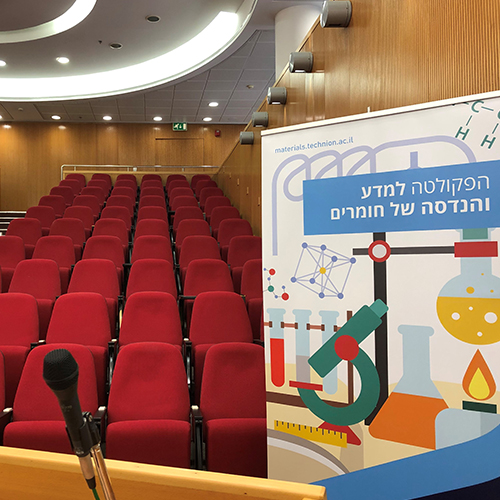
16/02/2026
אודיטוריום ע"ש דויד וואנג, בניין מידן, קומה 3
Mr. Alon Epshtein – PhD candidate
Department of Materials Science and Engineering Technion – Israel Institute of Technology, Haifa
Despite its high abundance, ease of production and high theoretical energy density of 8.4 kWh kg-1 on par with metallic Lithium 11.2 kWh kg-1, the possibility of using Silicon (Si) as an active multivalent rechargeable anode has yet to be explored. As a proof of concept, we demonstrate a novel Silicon cell, its design and architecture, enabling Si to be reversibly discharged. The research lays forth the mechanism during the discharge and charge process wherein, Silicon is dissolved and plated respectively. Quantum-chemical calculations based on density functional theory (DFT) in the framework of a continuum model for solvation in ionic liquids were performed to shed light on the Si ion deposition mechanism. Several discharge-charge cycles were achieved, utilizing heavy doped n-type Si wafer anodes, hybrid-based ionic liquid electrolytes, and dissolved halides, functioning as conversion cathodes. Furthermore, the study conveys a rigorous comprehensive experimental and computational approaches toward electrolyte design, characterization, and property prediction to maximize ionic conductivity, Silicon anode surface activation, and species distribution.


